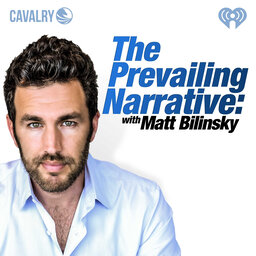Episode 15: Lead FBI Negotiator Chris Voss & Nicole Behnam On "The Tindler Swindler" and How to Spot a Fraud; Kony 2012 and the "Don't Say Gay" Bill - Slacktivist Internet Moral Panics; Update on Russia-Ukraine Conflict
0:12 - Intro: The "Tinder Swindler" becomes our new dating app villain; how do we spot a fraud and con artists?
5:27 - The 10 Year Anniversary of Kony 2012. Social media's 1st phony moral panic, but certainly not our last.
16:40 - "Don't Say Gay" Bill: Our newest phony moral panic, and the social media movement to distort a Florida bill about parental rights.
27:27 - Breakdown of current issues in the Russia-Ukraine conflict: Status of the military campaign, replacing Russian oil production, and Victoria Nuland's strange exchange with Marco Rubio
50:18 - Former Lead FBI Negotiator Chris Voss and Beyond Media Founder Nicole Benham join Matt to discuss "The Tinder Swindler", what this tells us about human nature, and how to protect yourself from frauds and con artists.
In 1 playlist(s)
The Prevailing Narrative with Matt Bilinsky
A lively and fiercely analytical breakdown of news and current events, with interviews of thought le…Follow podcast
Recent clips

Episode 30: "Dark Plots & Secret Explanations": Study Rejects "Chemical Imbalance" as Cause of Depression (Max Lugavere Discusses); Biden & His Media Surrogates Re-Define "Recession; Kansas Abortion Ruling; Zelensky Poses for Vogue(?!); Public Health Lies on Monkeypox
1:38:34

Episode 29: Kamal Ravikant - Silicon Valley Thought-Leader, Investor, & Bestselling Author on Loving Yourself, Stepping Past Fear, Extreme Sharing, Investing Skills, and Living a Life of Honesty, Adventure and Authenticity
1:12:12

Episode 28: Political Scientist Wilfred Reilly on Gun Control, Targeted Solutions, and the Facts and Myths About Gun Violence in America; Nihilism and Mass Shootings
1:44:29
 The Prevailing Narrative with Matt Bilinsky
The Prevailing Narrative with Matt Bilinsky